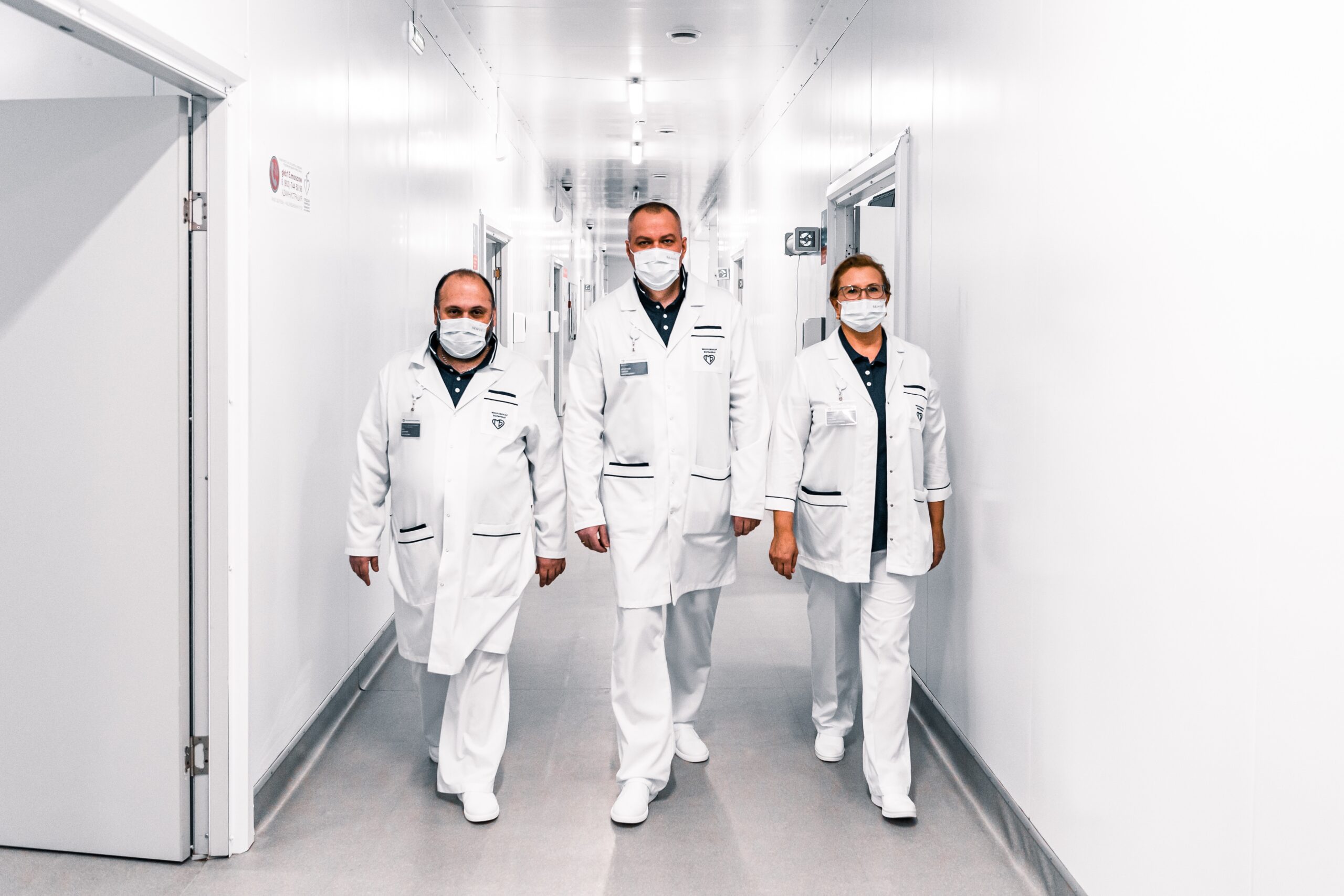A Healthcare system is like a big organization that helps people stay healthy and provides medical help when they’re not feeling well. It includes hospitals, clinics, doctors, nurses, and other medical professionals who work together to take care of people’s health. The healthcare system also involves things like medicines, tests, treatments, and ways to keep diseases from spreading. It’s like a network that’s set up to make sure everyone can get the right care they need to stay healthy or get better if they’re sick.
Why the need of healthcare system?
Promoting Health and Prevention: A healthcare system helps educate people about healthy habits and preventive measures like vaccinations, screenings, and lifestyle choices that can prevent illnesses before they occur.
Access to Medical Services: Not everyone is healthy all the time. A healthcare system ensures that when people get sick or injured, they have access to doctors, nurses, hospitals, and clinics to receive the necessary medical care and treatments.
Diagnosis and Treatment: A healthcare system provides the tools and expertise to diagnose illnesses accurately. It offers a range of treatments, therapies, and surgeries to address various health issues and conditions.
Managing Chronic Conditions: Many people have long-term health conditions like diabetes, heart disease, or asthma. A healthcare system helps manage these conditions, providing ongoing care, medications, and support to improve people’s quality of life.
Emergency Care: Accidents and emergencies can happen anytime. A healthcare system is equipped to provide immediate care and life-saving interventions during critical situations, ensuring people receive timely help.
Components of Healthcare system
Doctors and Nurses: These are the people who help when you’re not feeling well. They examine you, give you medicine, and take care of you.
Hospitals and Clinics: These are places where you go to get medical help. Hospitals are like big centers for more serious problems, while clinics are smaller places for check-ups and simple treatments.
Medicines and Treatments: These are things that help you get better. Medicines are like special liquids or pills that you take to feel better, and treatments are things like surgeries or therapies that doctors use to fix health issues.
Preventive Care: This means stopping illnesses before they start. Things like vaccines (shots) to protect you from diseases and check-ups to catch problems early are part of preventive care.
Health Records and Information: Doctors keep records of your health history and treatments. This helps them know what’s best for you and keeps track of how you’re doing over time.
Importance of Healthcare system
Preventive Care and Education: A strong healthcare system focuses on preventative measures and health education, helping people adopt healthier lifestyles and behaviors. Regular check-ups, vaccinations, screenings, and information about healthy habits can prevent illnesses and reduce the burden on the system in the long run.
Early Detection and Treatment: An effective healthcare system enables early detection of diseases and prompt treatment, which can significantly improve outcomes and reduce healthcare costs. Timely interventions can prevent conditions from progressing to advanced stages, increasing the chances of successful treatment and recovery.
Access to Essential Services: Healthcare ensures that essential medical services, including diagnostics, treatments, medications, surgeries, and therapies, are accessible to everyone, regardless of their socio-economic status. Equitable access to healthcare services promotes social justice and reduces health disparities.
Economic Stability and Productivity: A healthy population is a productive population. A functional healthcare system keeps individuals healthy and able to participate in the workforce. When people have access to proper healthcare, they can maintain their productivity and contribute to economic growth.
Emergency Preparedness and Pandemic Response: The healthcare system is essential for emergency preparedness and rapid response to unforeseen events, such as natural disasters, disease outbreaks, and pandemics. A well-organized healthcare system can effectively manage emergencies, provide critical care, and mitigate the spread of diseases.
What is the concept of health care system in India?
Here’s an overview of the concept of the healthcare system in India:
Public and Private Sectors: India’s healthcare system consists of both public (government-funded) and private (privately-funded) sectors. Public healthcare aims to provide affordable and accessible care to all citizens, especially those in rural and economically disadvantaged areas. Private healthcare offers a range of services and facilities with varying levels of quality and cost.
Primary, Secondary, and Tertiary Care: The healthcare system is structured into different levels. Primary care involves basic healthcare services provided by local clinics and health centers. Secondary care includes more specialized treatments and procedures provided by district hospitals and specialty clinics. Tertiary care involves advanced treatments and surgeries provided by major hospitals and medical centers in larger cities.
Government Initiatives: The Indian government plays a significant role in the healthcare system through initiatives like the National Health Mission (NHM), which aims to provide accessible and affordable healthcare to all citizens. It includes programs for maternal and child health, immunization, and rural healthcare development.
Challenges: The Indian healthcare system faces challenges such as inadequate infrastructure, uneven distribution of healthcare facilities, shortage of medical professionals, and affordability issues for a large portion of the population. This can lead to disparities in access to quality healthcare.
Traditional and Modern Medicine: India has a rich tradition of traditional medicine systems like Ayurveda, Yoga, and Naturopathy. These systems are integrated into the healthcare framework alongside modern medicine practices.
Health Insurance: With the rising costs of healthcare, health insurance has gained importance. Both public and private health insurance schemes aim to provide financial protection against medical expenses.
Medical Tourism: India is known for medical tourism, where people from other countries come for medical treatments due to the availability of skilled medical professionals and cost-effective services.
Digital Healthcare: In recent years, there’s been an increasing focus on using technology for healthcare services. Telemedicine and mobile health apps have emerged as convenient ways for people to access medical advice and consultations.

